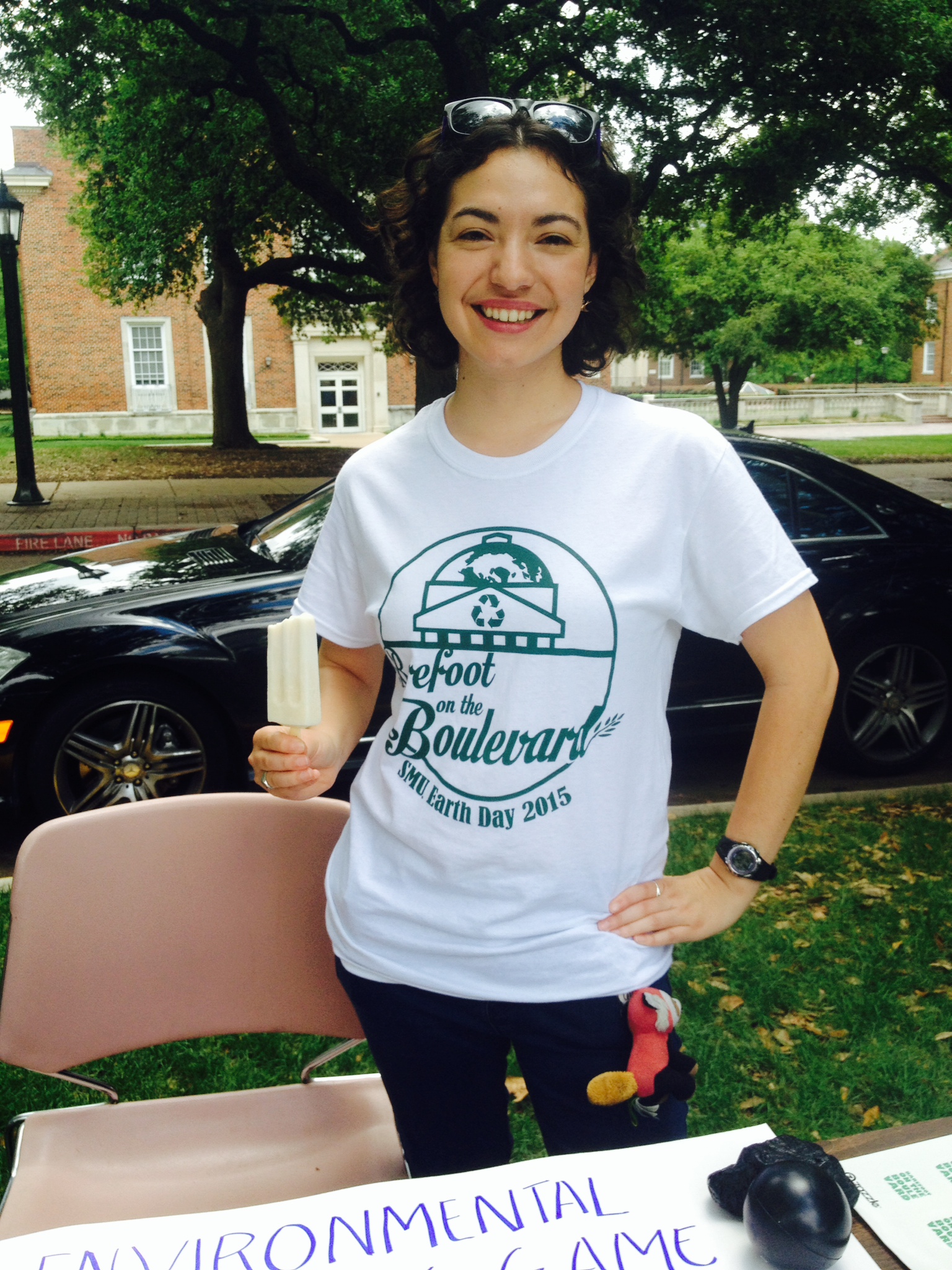SMU student with passion for the environment trading beloved Trinity Forest for Superfund remediation
Shouldering her way through branches and vines, frequently ankle-deep in water, Jewel Lipps is never happier than when she is studying the plant and animal life in the Great Trinity Forest
DALLAS (SMU) – Shouldering her way through branches and vines, frequently ankle-deep in water, Jewel Lipps is never happier than when she is studying the plant and animal life in the Great Trinity Forest, which grows in the floodplain of the Trinity River south of Dallas.

“Yes, I will miss ‘my forest,’ as I casually call it,” Lipps said. “It’s special to me personally because it’s where all my dreams and plans to be a researcher came to fruition.”
When she graduates May 16, she will be bound for work by summer’s end as a research participant with the Oak Ridge Institute for Science and Education (ORISE). She will be assigned to a mining remediation/ecological revitalization project at the U.S. Environmental Protection Agency Office of Superfund Remediation & Technology Innovation near Washington, D.C.
“The ORISE program lasts 1-3 years, and I hope to go to graduate school after completing my ORISE project,” Lipps said. “I want to work on restoring contaminated lands to ecological health for the benefit of human communities.” She thought she would be diving straight into a Ph.D. program immediately after graduating from SMU, but learned along the way that she wanted to learn first from a meaningful, real-world job experience.
It’s an exciting prospect for someone who loves research. But the ORISE opportunity also means leaving her forest behind, which she admits is hard.
“It represents such an integral part of my development as a research scientist as well as an engaged, confident person,” Lipps said. “Besides this, the forest has a captivating beauty and the people at the Trinity River Center are so passionate, curious and caring about both conservation and education. The Trinity River Audubon Center is truly unique and I’ll never find another place quite like it.”
Lipps, who is from College Station, began working with other SMU students in the forest through the efforts of Dedman College faculty mentor Bonnie Jacobs, a noted paleobotanist. The students have worked to identify and characterize riparian forest communities within the Great Trinity Forest at the Trinity River Audubon Center. Lipps has documented much of their work through blogging, has used videos to help demonstrate how the group has conducted its research, and is very proud of the website she has developed, “Exploring the Great Trinity Forest.”
“Jewel has been such a joy to work with!” Jacobs said. “Academically, she operates at the level of a really good graduate student because she seeks out information on her own, plans her work to achieve a high level of excellence, and has an insatiable intellectual curiosity. On a personal level, she is a quiet force - a person who has confidence while never bragging, and is someone who could do anything she wants, but who chooses to do all she can to conserve and restore the natural world.”
Lipps received Honorable Mention in the 2014 Morris K. Udall and Stewart L. Udall Foundation Scholars competition. A member of SMU’s University Honors Program, Lipps has conducted environmental research as part of Dedman College’s Gaffney Family Interdisciplinary Initiative at the Institute for the Study of Earth and Man (ISEM) and the National Science Foundation’s Research Experience for Undergraduates (REU) program.
In addition to her academic pursuits, Lipps has taken an active role in SMU environmental organizations, earning her the 2014 Leadership in Sustainability Award from the SMU Sustainability Committee. Lipps has been president of the student SMU Environmental Society and the Dedman College student representative to the SMU Sustainability Committee, and previously served as an Environmental Representative (E-Rep), providing peer role modeling and promoting environmentally conscious behavior within her campus residential community.
###